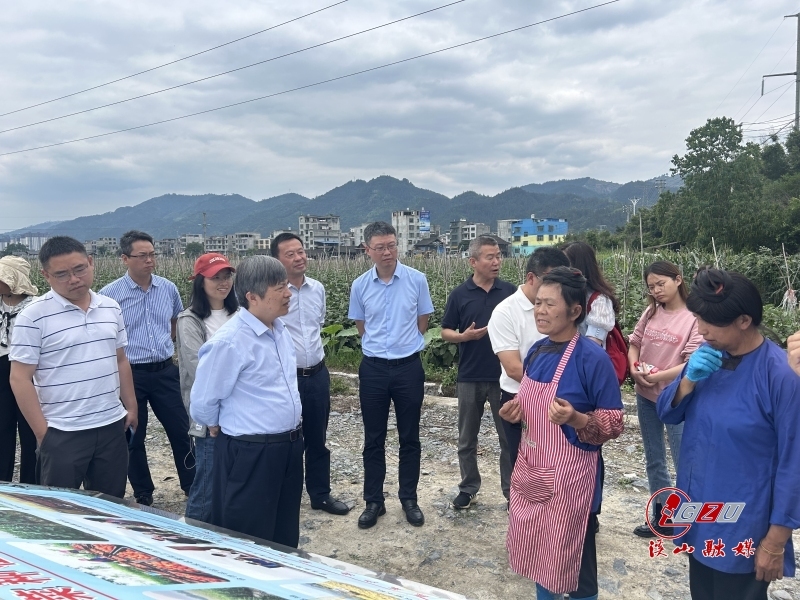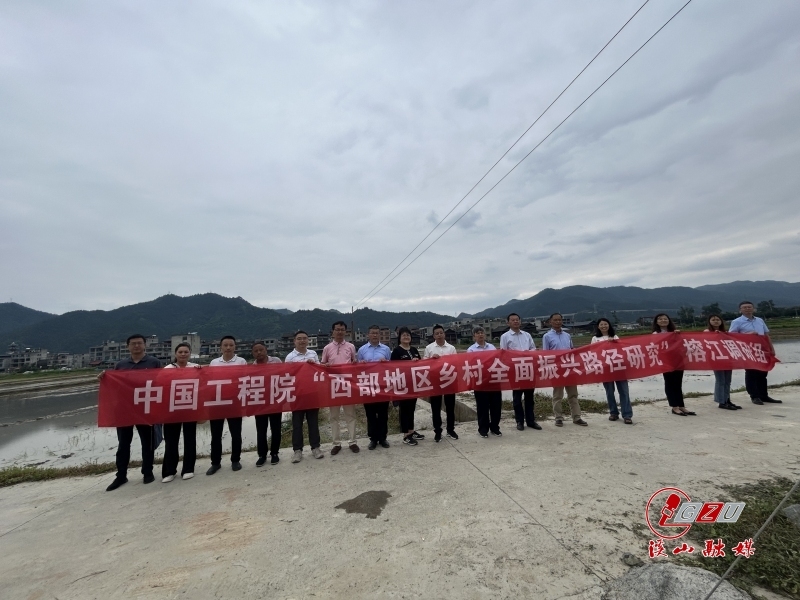From June 1 to 2, President Song Bao’an, as the project leader, led a research team from the Chinese Academy of Engineering’s flagship project, “Pathways to Comprehensive Rural Revitalization in Western Regions”, to conduct field surveys in Rongjiang County and Qixingguan District. The team included members from Sichuan Academy of Agricultural Sciences, Yunnan Agricultural University, Chongqing Academy of Agricultural Sciences, and GZU.

On June 1, the team visited the Yangguang Vegetable Planting Farmers’ Cooperative and the Happy Homeland Family Farm in Rongjiang County to study the “cooperative + base + farmer” operational model. They held a meeting at the Chejiangba District Command to understand how various market entities in the district bring agricultural products to market, reduce transaction costs, and enhance farmer resilience against market and natural risks. During the meeting, the Mayor of Rongjiang County, Xu Bo, introduced how the “Village Super League”, a rural football initiative, has become a flagship brand in revitalizing the county’s economy by transforming traditional rural entertainment into innovative development pathways. President Song Bao’an affirmed the research team’s commitment to documenting Rongjiang County’s successful integration of talent, industry, and technology for rural revitalization. Their findings will be compiled into a comprehensive report seeking support from relevant authorities.
On June 2, the team visited Longfeng Technology Courtyard, Longfeng Village Prickly Pear Base, and Ganlongtan Community in Yachi Town, Qixingguan District. They engaged in in-depth discussions with students from the technology courtyard and local leaders to learn about developments in local industries and rural skill training. District Mayor Huang Haigang introduced the economic and social progress of the district, particularly in vocational skill training. President Song Bao’an underscored the importance of rural skilled labor in China’s manufacturing and innovation sectors, highlighting its crucial role in consolidating poverty alleviation achievements and ensuring sustainable income growth for farmers. The team will summarize Qixingguan District’s best practices in rural vocational skill training to inform future initiatives.

The “Pathways to Comprehensive Rural Revitalization in Western Regions” project, a strategic initiative of the Chinese Academy of Engineering, involves extensive surveys across 13 western provinces (cities, autonomous regions), including Guizhou, Yunnan, Sichuan, Guangxi, Ningxia, Qinghai, Inner Mongolia, and Xinjiang. The research focuses on such issues as rural industrial systems, talent and technology support, infrastructure development, market demands, investment efficiency, farmer income growth, and rural governance. The project aims to identify developmental bottlenecks, pinpoint key areas for technology and talent support, propose strategies for technological and talent-driven rural revitalization, and provide scientific consultation for policy decisions regarding rural revitalization in China, especially in its western regions.
During the surveys, President Song Bao’an also met with GZU alumni working in Rongjiang and Qixingguan, who shared their insights on industrial development, rural governance, talent cultivation, and rural revitalization. They expressed gratitude to GZU for their education and reaffirmed their commitment to staying rooted in grassroots work and serving the rural revitalization cause.
Editor: Li Xuefei
Chief Editor: Zhang Chan
Senior Editor: Li Xufeng
Translator: Jia Haibo